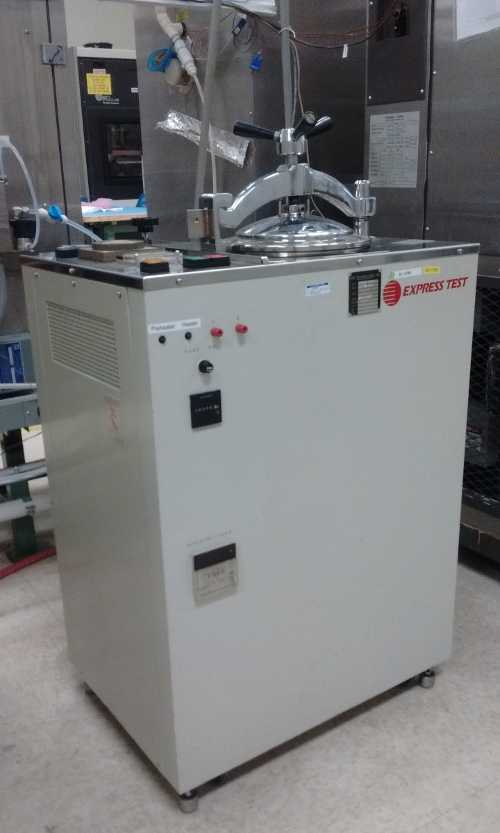Autoclave Testing
The autoclave test evaluates moisture resistance for non-hermetic packaging of solid-state devices. Also referred to as ‘steam bomb’ testing, the autoclave test is a highly accelerated test performed in a moisture-condensing or moisture-saturated environment where moisture sensitivity levels are measured.
During autoclave testing, the conditions of high temperature, high pressure and 100% humidity accelerate moisture penetration into encapsulated device packages. Moisture generally penetrates in two areas:
- Directly through the encapsulant material
- At the sealing interfaces where the conductors (lead-frame parts) pass through the encapsulant material into the active device region
Autoclave testing should be performed when a new non-hermetic package is introduced or whenever a package is redesigned (such as a change in molding compound, lead frame, die-attach adhesive or die passivation). Autoclave testing differs from other moisture resistance testing primarily in the fact that the autoclave test has a condensing ambient while HAST (Highly Accelerated Stress Test) and typical temperature-humidity testing are non-condensing. The autoclave test is typically run at 121°C for 96-hours in a pressure vessel containing a small quantity of DI or distilled water; this produces 100% humidity at a pressure of two atmospheres.
- Test Specifications / Standards
- JESD22-A102




